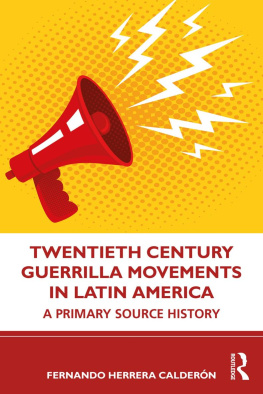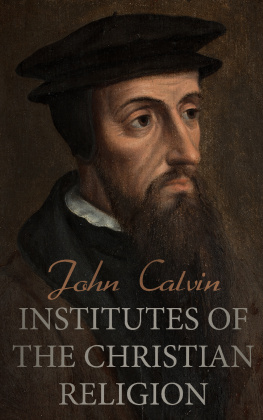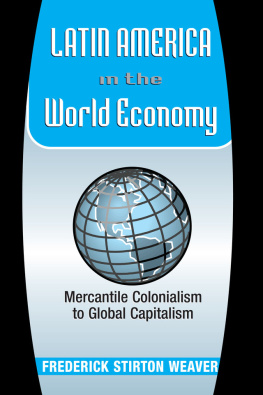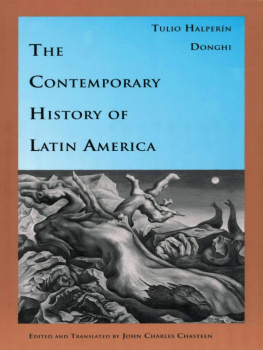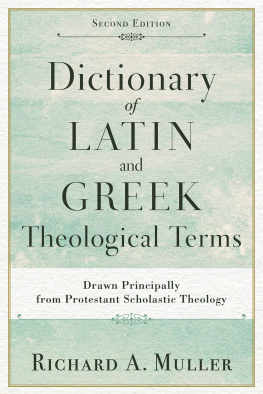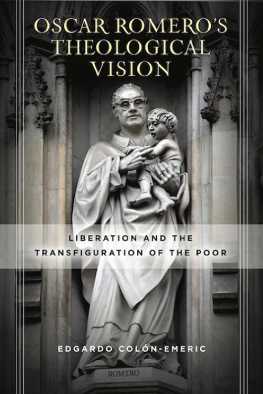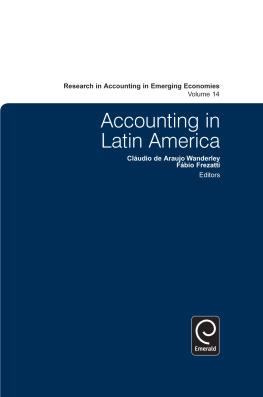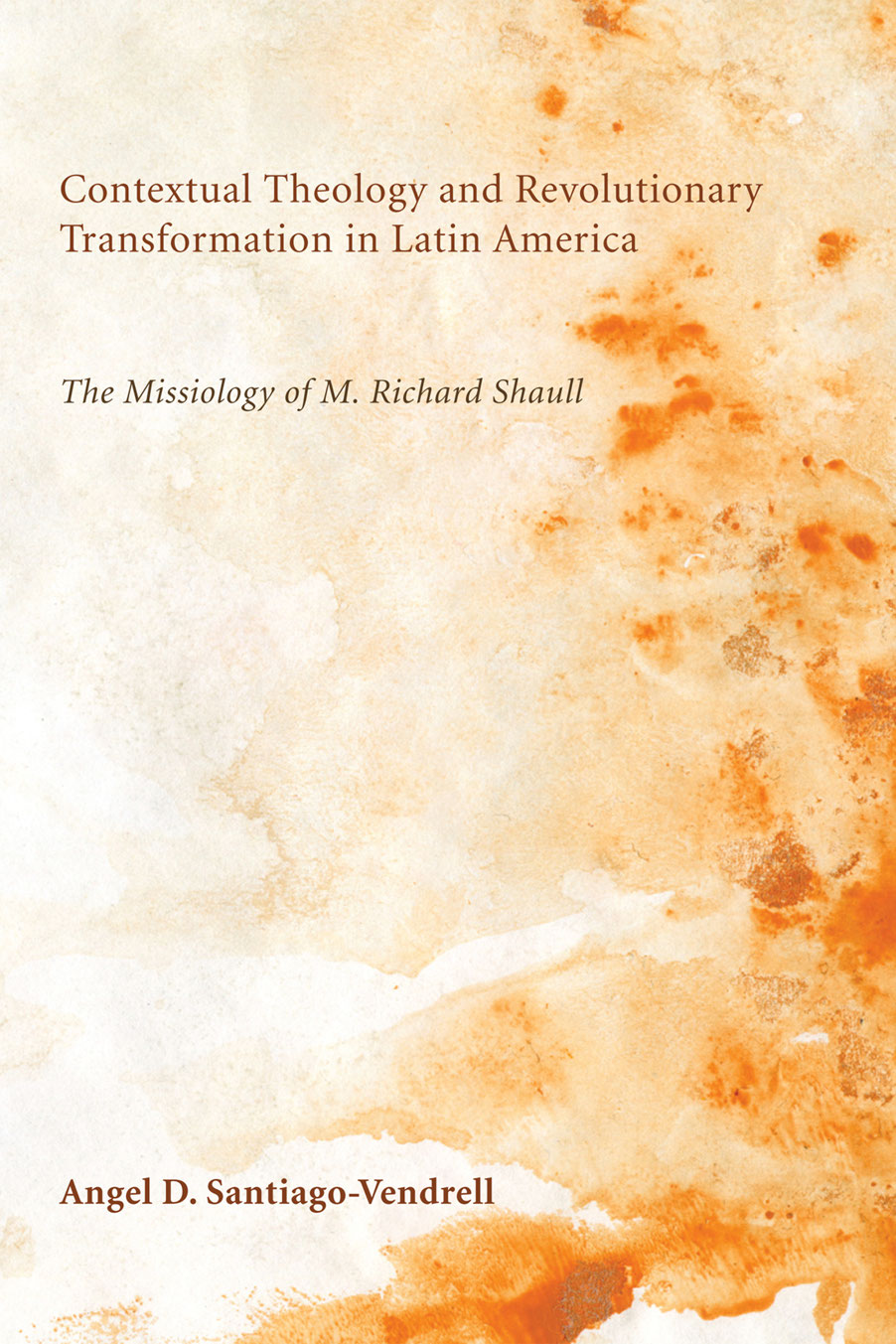Contextual Theology and Revolutionary Transformation in Latin America
The Missiology of M. Richard Shaull
Angel Daniel Santiago-Vendrell
CONTEXTUAL THEOLOGY AND REVOLUTIONARY TRANSFORMATION IN LATIN AMERICA
The Missiology of M. Richard Shaull
Copyright 2010 Angel Daniel Santiago-Vendrell. All rights reserved. Except for brief quotations in critical publications or reviews, no part of this book may be reproduced in any manner without prior written permission from the publisher. Write: Permissions, Wipf and Stock Publishers, 199 W. 8th Ave., Suite 3, Eugene, OR 97401.
Pickwick Publications
An Imprint of Wipf and Stock Publishers
199 W. 8th Ave., Suite 3
Eugene, OR 97401
www.wipfandstock.com
isbn 13: 978-1-60899-305-5
eisbn 13: 978-1-4982-7265-0
Cataloging-in-Publication data:
Santiago-Vendrell, Angel Daniel
Contextual theology and revolutionary transformation in Latin America : the missiology of M. Richard Shaull / Angel Daniel Santiago-Vendrell.
viii + 198 p. ; 23 cm. Includes bibliographical references and indexes.
isbn 13: 978-1-60899-305-5
1. Shaull, Richard. 2. RevolutionsReligious aspectsChristianityHistory of doctrines20th century. 3. MissionsLatin America. 4. Liberation theology. I. Title.
bt738.3 s3 2010
Manufactured in the U.S.A.
In loving memory of my parents Antonia Toita Vendrell and Gilberto Santiago,
And my father in law Wae-Jae Im
For those who are sharing their lives with me
My wife Misoon Im
My son Daniel Im Santiago
My mother in law Hye-Won Park
And my brother in law Jinsoon Im
Introduction
A Young Man Worth Watching was the prophetic title of a chapter written by Charles T. Leber describing Richard Shaull, then a young missionary to Colombia, South America. On April 20 1942, The Board of Foreign Missions of the Presbyterian Church in the United States of America appointed Shaull a missionary. This book is an historical and missiological study of the work of Richard Shaull, who was one of the foremost North American Protestant missionaries and ecumenical leaders to and in Latin America in the second half of the twentieth century.
The study of Richard Shaulls life reveals a myriad of connections with significant theological and political issues of the day. He was a pastor, missionary, evangelist, political activist, human rights advocate, theologian, seminary professor, ecumenicist, writer, and editor of different scholarly journals. This range of activities, and his network of acquaintances, raises the following questions: How did Shaull understand God and Gods mission? What core beliefs unified and integrated his variety of interests? What associations and influences helped to shape his identity and thought? The interpretative challenge of this book is to find out how Shaulls understanding of mission developed in dialogue with his multiple contexts.
When Shaull arrived in Colombia in 1942, he intended to build up a weak church, to develop a strong youth movement, and to establish new patterns of evangelistic outreach. Shaull was appointed as an evangelist to the city of Barranquilla and he developed new patterns of evangelization there. For example, he was a firm believer in literacy as a means of evangelization. He worked with factory workers by opening his house for night studies. One of Shaulls first radical decisions in the 1940s was to move to the poorest neighborhood of Barranquilla and make his house a haven for the masses. He was engaged in developing new centers of preaching in the rural areas in cooperation with the youth groups of the region; so, seeing the necessity of trained local leaders, he opened a new training program in his home.
Shaulls role as a Christian political activist was clearly seen in his last two years of ministry in Bogot, Colombia, where he assumed the pastoral leadership of First Presbyterian Church from 1948 to 1950. A terrible political and religious persecution emerged when the Conservative Party regained control of Colombia. In the midst of religious persecution, Shaull was a bridge figure informing the Colombian government and North Americans of human rights violations.
In 1952, Shaull arrived in Brazil for a new missionary appointment after spending several years in the United States completing a doctoral program under Paul Lehmann. In this country, he understood the difficulties that the church would face in a revolutionary world. The Communist victory of Mao-Tse Tung in China, the Mau Mau revolt in Kenya inspired by nationalism to end colonialism, and the unrest in Southeast Asia and Latin America were clear indicators that the world was going through a revolutionary process. Shaull worked intensively in universities and educational centers in the early 1950s to offer an antidote to Communism in Brazil. He wondered whether perhaps God was using Communism to destroy Christian complacency and to awaken the church to strive for justice in the world.
In 1954, Shaull participated in the early stages of formulating the study guide on The Church and Responsible Society for the Evanston Conference of the World Council of Churches. In 1955, partly at his initiative, the Commission on Church and Society was created in Rio de Janeiro. Shaulls involvement with the Confederation of Presbyterian Youth, Christian Union of Brazilian Students, Christian Association of Academics, and ISAL (Church and Society in Latin America) made him one of the leading Protestant theologians in Latin America in the 1950s.
Shaull challenged the Presbyterian Church to take a stand in the social situation of Brazil. He criticized missionaries and church leaders for their puritanical tendencies and for their concern with the salvation of souls while neglecting the socio-political structures of oppression. He considered that God had called the church to participate in the struggles of human beings in the world through the formulation of new ways to express the gospel at that particular time in Brazilian history. His missiology was rooted in the conviction that God was active in the world through the agency of Jesus Christ and the guidance of the Holy Spirit in the church. Throughout his missionary career in Latin America, the church took a central place in the evangelization of the world.
Shaull spent twenty years as a missionary in Latin America before he returned to the United States. During his last appointment as a missionary in Brazil from 1952 to 1962, he experienced the impact of the Cold War in Latin America. When Shaull return to North America, he became critical of U.S. foreign policy, seeing it as out of touch with the revolutionary processes occurring in Latin America. In a sense he had become a reverse missionary.
His contribution to the field of missiology was attested to in his editorial role in Christianity and Crisis, NACLA Newsletter, and Cristianismo y Sociedad. As a member of the political New Left, he was engaged with Herbert Marcuse, and Carl Oglesby (among others) in criticizing American imperialism in the world. Following his doctoral advisor Paul Lehmann, Shaull strived to create a socio-political ethic that would take the concrete actions of God in history as a starting point for formulating options for social transformation. Shaull was one of the first Presbyterian missionaries after WWII who made the social, political, and cultural revolution of his time the fundamental theme of theological reflection.


